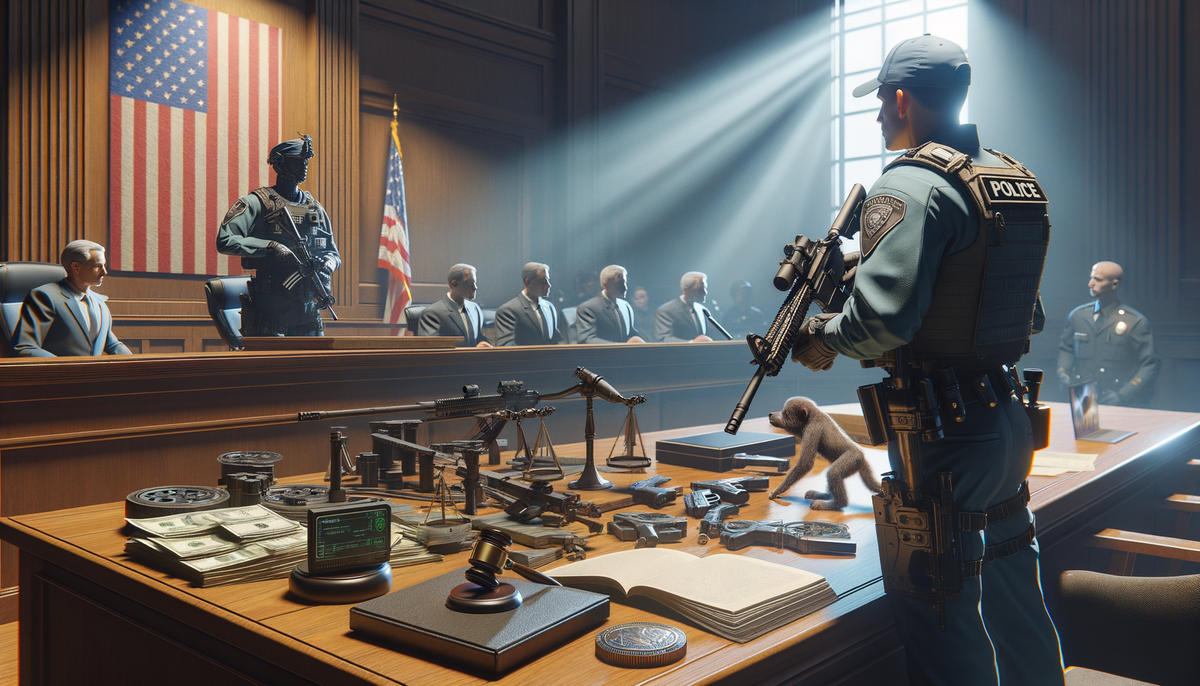Christopher Schurr Trial: A Deep Dive Into the Former Officer's Legal Battle
Explore the ongoing trial of former officer Christopher Schurr, examining its implications on police practices and public sentiment.

Christopher Schurr Trial: A Deep Dive Into the Former Officer's Legal Battle
Understanding the Impact of the Christopher Schurr Case
The trial of former Grand Rapids police officer Christopher Schurr has captivated public attention, not just locally in Michigan, but across the nation. Schurr, who gained notoriety following his involvement in the fatal shooting of Patrick Lyoya on April 4, 2022, finds himself at the center of a contentious legal battle in 2025. This case poses significant implications for both law enforcement practices and the larger conversation on police reform.
Background and Career
Born and raised in Grand Rapids, Michigan, Christopher Schurr comes from a lineage of military service, albeit he chose a career in law enforcement—a pioneer move in his family. Initially venturing into the world of business with a degree in accounting, Schurr's true calling led him to the Mid Michigan Police Academy. Graduating with a criminal justice degree from Siena Heights University in 2014, Schurr joined the Grand Rapids Police Department in 2015. Over his seven-year tenure, he was lauded for his dedication and received numerous commendations for situations involving foot pursuits of suspects.
The Patrick Lyoya Incident
On April 22, 2022, a routine traffic stop ended fatally for Patrick Lyoya, a recent émigré from Congo. The incident, occurring on the symbolic date of Martin Luther King Jr.'s assassination anniversary, sparked national outrage and weeks of protests advocating for police reform. The situation quickly escalated into a physical altercation over Schurr's Taser, leading to the tragic shooting of Lyoya.
Legal Proceedings and Current Trial
Charged with second-degree murder and terminated from his position, Schurr stands trial in what has been characterized by some as a test of modern policing practices. Second-degree murder in Michigan carries significant consequences, including potential life imprisonment.
This high-profile trial, ongoing as of May 2025, sees Schurr’s defense claiming self-defense against the prosecutor’s charges of excessive use of force during the altercation. The prosecution argues that Schurr's Taser had already been discharged twice, rendering it non-threatening at the time of the shooting.
The courtroom has become a battleground of narratives, with expert testimonies brought forth by both sides. Notably, Schurr took the stand on May 2, 2025, offering his account amidst mounting pressure. Recently, a motion for a mistrial was filed by the defense, alleging the lack of credible witness expertise, which taps into broader legal considerations.
Community and Media Response
Coverage by outlets like Wood TV 8 and Mlive has highlighted the community's divided stance on Schurr's actions — some demonstrating outside the courthouse to voice demands for justice, while others rally in support, backed by organizations like the National Center for Police Defense. This layered public sentiment underscores the delicacy and complexity involved in the trial's proceedings.
Implications for Law Enforcement and Professionals
For professionals and leaders within law enforcement and legal fields, the Schurr trial serves as a critical case study. It beckons the need for rigorous training on non-lethal engagements and recalibration of police-community interactions. Enhancing transparency and communication could foster public trust and mitigate future incidents.
Agencies must reflect on policies and bolster community outreach, ensuring officers are equipped not just with tactical resources, but also with cultural competence and conflict de-escalation techniques.
Conclusion and Moving Forward
The Christopher Schurr trial is not just a legal proceeding; it is a socio-political crucible for change. Whether acquitted or convicted, the outcome will resonate through law enforcement corridors across the country. As we continue to follow the developments, this serves as a moment for reflection and reform in pursuit of justice and equity.
For continuous updates and further insights into the trial's progress, consider subscribing to our newsletter and explore more about our services in navigating complex legal landscapes at Newsomix. Connect with us to understand how these events shape the future of policing and community relations.




